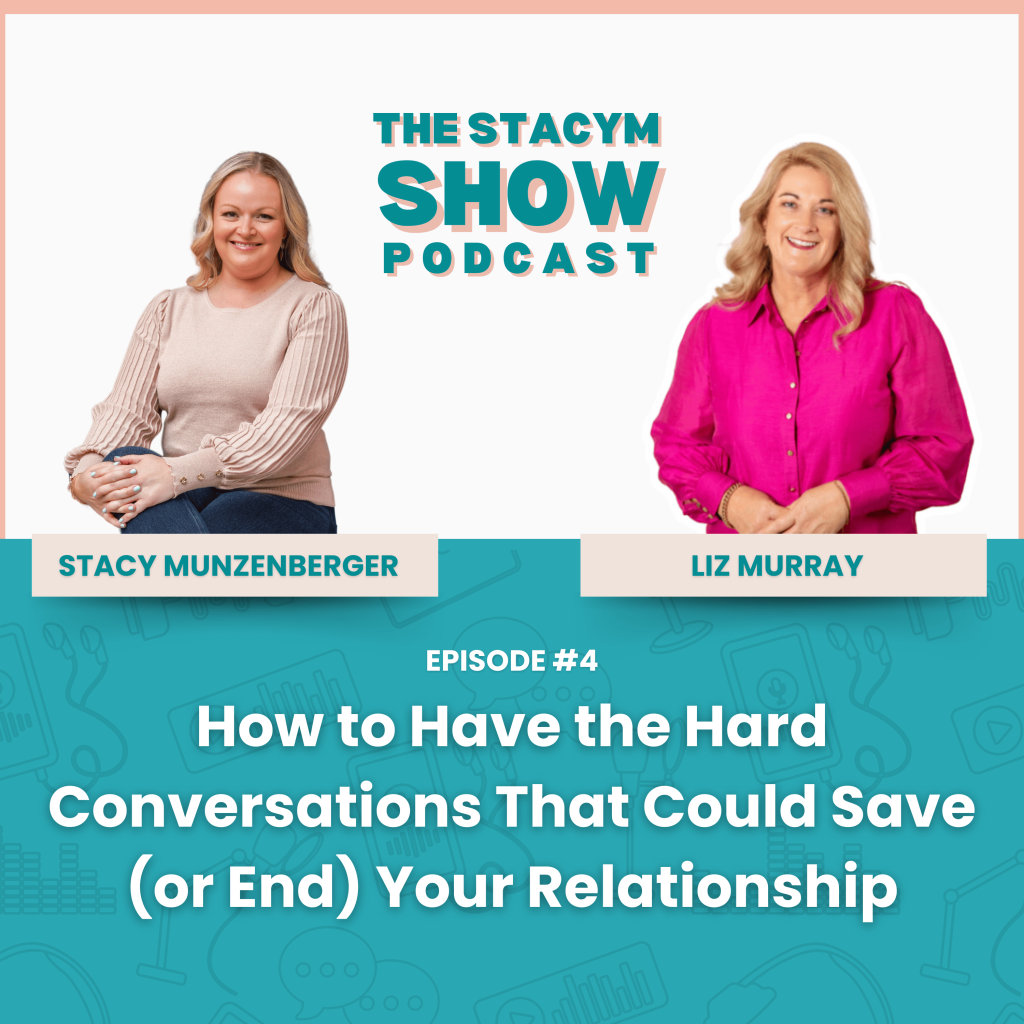How to Have the Hard Conversations That Could Save (or End) Your Relationship
In this episode of The StacyM Show, I sat down with leadership coach Elizabeth from Edge of Possibilities to unpack one of the hardest things we face in life: having tough conversations in our closest relationships.
Whether you’re questioning your relationship, navigating separation, or simply struggling with day-to-day communication at home, these conversations matter. In fact, as family lawyers, one of the first questions we ask is: “Is the relationship definitely over?” Surprisingly, many couples realise that communication — or the lack of it — has been the real issue.
So, how do we start these conversations without them spiraling into conflict?
Why Tough Conversations Are So Hard
Elizabeth explains that even though our intimate partner is the person we spend the most time with, they’re often the hardest person to be vulnerable with. Ironically, they’re also the person who needs to hear it most.
When we hold back, repress emotions, or avoid honesty, resentment builds. Small things like not taking out the rubbish can snowball into bigger issues, not because of the chore itself, but because of what it represents: unmet needs, mismatched values, and unspoken frustrations.
Tips for Navigating Difficult Conversations
Here are some key takeaways from our discussion:
1. Acknowledge It’s Tough
It’s okay to admit that these conversations feel heavy. Recognising the weight of the situation helps you approach it with more compassion for yourself and your partner.
2. Get Clear on What You Want
Don’t just aim to “say your piece.” Ask yourself: What’s the outcome I want? Do you want your partner to understand your perspective, change a behaviour, or simply acknowledge your feelings?
3. Watch Your Delivery
The how matters more than the what. Tone, body language, and timing are crucial. Coming in defensive or aggressive means your partner will likely shut down or escalate. Choose a calm moment and frame your words with care.
Remember: 80% of communication is body language.
4. Start Small
If big conversations feel overwhelming, begin with something simple. Don’t unleash a laundry list of complaints. Address one issue at a time.
5. Go Deeper Than the Surface
It’s rarely about the bins. Often, it’s about feeling unsupported, disrespected, or out of sync in values. Communicate the “why” behind what you need, not just the task itself.
6. Acknowledge and Appreciate
Acknowledgement goes a long way. A simple “Thanks for doing that — it makes me feel less stressed” can reinforce positive behaviours and create goodwill.
7. Be Open to Their Response
Sometimes, the conversation won’t go how you expect. They may react defensively, be distracted, or even disagree. Stay open — their response is information, not the end of the dialogue.
Why Tough Conversations Are So Hard
Having tough conversations is never easy — but avoiding them is far harder in the long run. The key is to be intentional, compassionate, and clear about your needs.
As Liz beautifully put it: “We don’t have to agree on everything. What matters is being willing to understand each other.”
If you’re navigating relationship challenges, separation, or just need support in communicating better, don’t hesitate to reach out. These skills aren’t just for couples — they’re essential in every part of life: family, work, and leadership.
Want more support?
Connect with Elizabeth at Edge of Possibilities for leadership coaching, or reach out to me at Aqua Legal if you’re facing family law questions. You don’t have to have these conversations alone.

